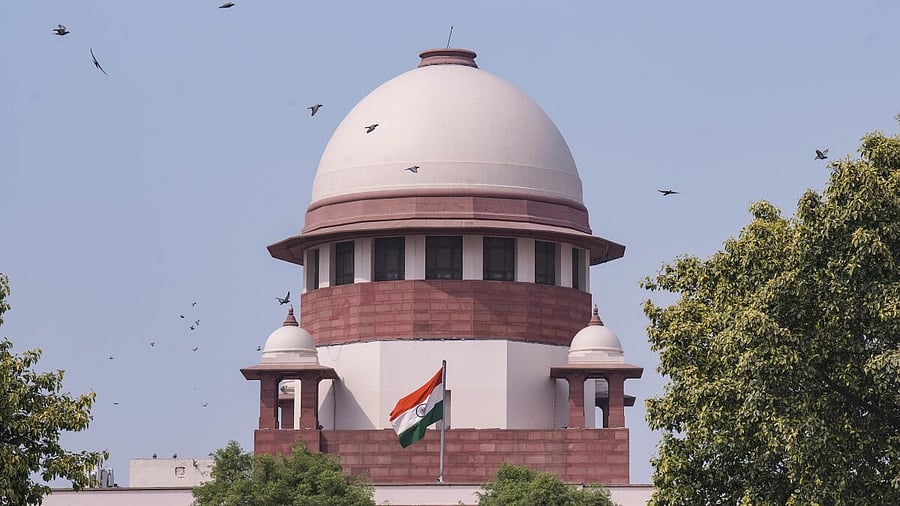
The Supreme Court of India.
Credit: PTI File Photo
New Delhi: The Supreme Court on Friday issued a notice on a plea for the Election Commission to frame rules for registration and regulation of political parties to promote secularism, transparency, and political justice.
A bench of Justices Surya Kant and Joymalya Bagchi decided to entertain the matter but asked petitioner-advocate Ashwini Upadhyay to implead the registered national political parties in the petition.
Taking up the plea, the bench told the petitioner, “They (political parties) will say that you're asking something to regulate them and they were not here”.
After hearing submissions from Upadhyay, the bench issued notice to the Centre, Election Commission and the Law Commission of India on the plea.
The plea submitted that the move to regulate political parties within the ambit of the Constitution would pave the way for robust democratic functioning.
The plea, citing media reports, contended that facts constituting the cause of action accrued on July 13, 2025, when income tax authorities raided the offices of two political parties and found the details of 500 crore black money. The plea said both political parties were formed to take donations in cash through hawala and to return money through cheque after deducting 20% commission.
It contended that injury to the citizens is large because around 90% political parties are formed to convert black money into white, and they never contest elections but collect thousands of crores in cash and refund it to the donor through cheque after deducting 20% commission.
The plea contended that the "bogus political parties" not only posed a serious threat to democracy but also maligned the country by appointing hardcore criminals, kidnappers, drug smugglers and money launderers as national and State office-bearers after taking huge amounts of money from them.
"There are no rules and regulations for political parties. Therefore, many separatists have formed their political party to collect donations. Some office-bearers of these parties have succeeded in getting police protection also," the plea said.
The plea also contended that transparency and accountability in the working of political parties are essential in the public interest as they perform public functions and, therefore, the Election Commission must frame rules and regulations for them.
The petitioner also sought a direction to the Law Commission of India to examine the best practices of developed democratic countries and prepare a comprehensive report on registration and regulation of political parties to reduce corruption and criminalisation in politics.
